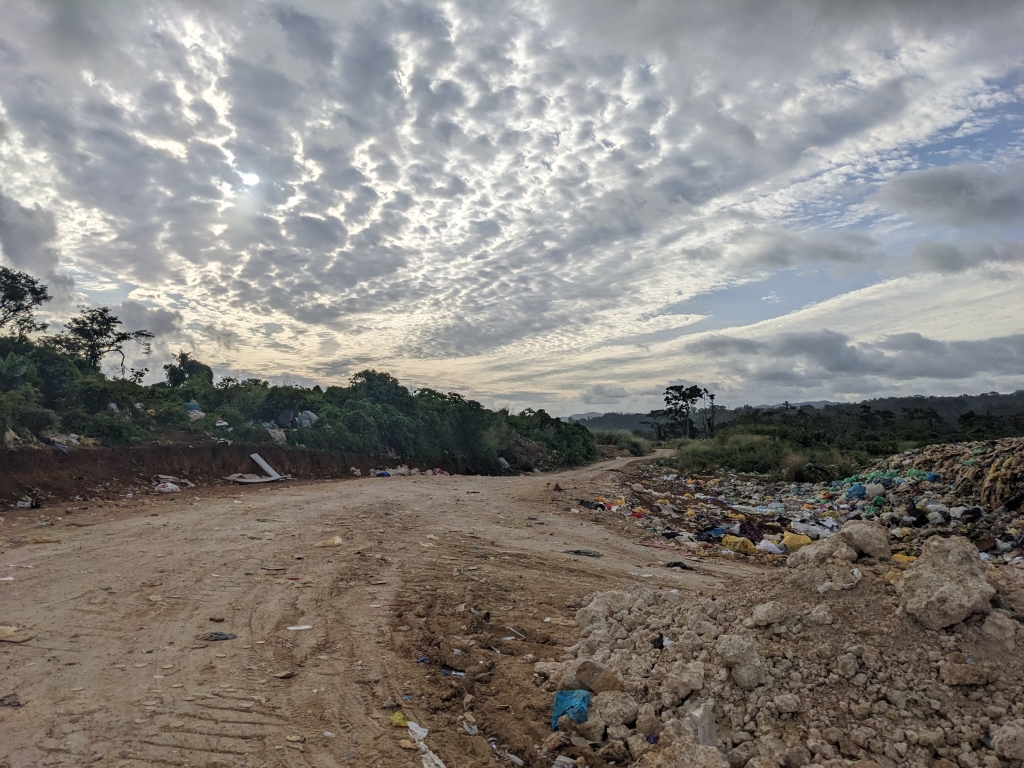
While country representatives from across the world gathered in Paris to negotiate a treaty on plastic pollution, the Secretariat of the Pacific Regional Environment Programme (SPREP) through the AFD-funded ‘Committing to Sustainable Waste Actions in the Pacific’ (SWAP) project conducted a series of impactful training on Marine Litter in Port Vila Vanuatu, among other project activities.
This collaborative effort brought together various local communities and organisations across Vanuatu, including the Department of Environmental Protection and Conservation (DEPC) of the Ministry of Climate Change Adaptation, Meteorology and Geohazard, Environment, Energy and Disaster Management, Vanuatu Local Authorities, Sustainable Coastlines New Zealand, the French Embassy, and the SWAP team from Samoa, to conduct beach clean-ups and waste surveys and audits.
To this end, three trainings were delivered by Sustainable Coastlines New Zealand to local stakeholders, across May and June. The purpose of these activities was to train local communities on how to safely carry out marine litter waste clean-up and how to conduct statistically reliable waste surveys and audits at three different locations in Vanuatu, Ifira Island, Ifira Point Beach and Etmat Bay.
“In total, 50 participants have been trained by Sustainable Coastlines across three different communities, resulting in the collection of 61 kilos of waste. Of this plastic accounts for close to 90 per cent of the items collected and 66 per cent of the total weight. This includes a fishing net, plastic bottles, as well as soft and hard plastic fragments,” said Ms Julie Pillet, the Project Coordinator of SWAP at SPREP.

“We were really surprised to find a large number of fibreglass fragments on Ifira Island – 90 in all, and on Ifira Point Beach with over 3,400 fragments. We suspect these may have come from the wharf opposed where a pile of fibreglass fragments was sighted. Increasing good practice in handling these materials could prevent them from entering the environment.”
All the data collected during the training is available on the Litter Intelligence application developed by Sustainable Coastlines: https://litterintelligence.org/.
The marine litter activities carried out in May were an important step in the implementation of the SWAP Project in Vanuatu, especially the ‘Tackling Marine Litter in selected sites in Shefa Province, Vanuatu’ Pilot Project that will be coordinated by the Department of Environmental Protection and Conservation, in collaboration with the SWAP Team.
The mission in Vanuatu was also an opportunity to visit the Bouffa Landfill where SWAP plans to upgrade the access road, which is not drivable during the rainy season. This is a priority for the SWAP Project to help the country recover from the cyclones that occurred in March 2023.

“We’re really excited to be a part of this, any support that we can provide to help empower good waste practices is one we’re proud to be involved with,” said Ms Pillet.
“We have a number of different activities that we have underway and planned for Vanuatu.”
The last SWAP activity underway during the months of May and June was the final stakeholders’ consultation workshop in collaboration with DEPC to discuss and presented the draft National Used Oil Management Plan for Vanuatu. Currently, it is estimated that about 280,000 – 380,000 litres of used oil are being generated annually in Vanuatu. This used oil is essentially unmanaged. However, improper disposal of these used oils can have major negative impacts on natural resources such as groundwater, the marine environment and soil, as well as on human populations. Poor management of used oil is a major environmental concern for Pacific Island nations including Vanuatu.
“The National Used Oil Management Plan aims to establish and direct an appropriate management framework in Vanuatu to improve national management of used oil and promote shared used oil management responsibility by all national stakeholders.,” said Ms Pillet.
The second part of this consultative workshop aimed to present and discuss the forecasted SWAP-funded Used Oil Management Pilot Project in Vanuatu being developed by DEPC. This will be part of a Public-Private Partnership to install and operate a pyrolysis technology in Vanuatu.
The series of Marine Litter Trainings facilitated by Sustainable Coastlines New Zealand was held in Shefa Province, Vanuatu on 30 and 31 May 2023.
The final stakeholder consultation workshop held in collaboration with DEPC on the draft National Used Oil Management Plan for Vanuatu was held on 1 June 2023.
These activities were supported by the AFD-funded ‘Committing to Sustainable Waste Actions in the Pacific’ (SWAP) project.
SWAP aims to improve sanitation, environmental, social and economic conditions in Pacific Island Countries and Territories through proper waste management”. The six SWAP Pacific islands are Fiji, Samoa, Solomon Islands, Tonga, Vanuatu, and Wallis and Futuna.
The Committing to Sustainable Waste Actions in the Pacific (SWAP) Project is funded by the Agence française de développement (AFD) https://www.afd.fr/ and executed by the Secretariat of the Pacific Regional Environment Programme (SPREP) https://www.sprep.org/.
Agence Française de Développement (AFD) implements France’s policy on international development and solidarity. Through its financing of NGOs and the public sector, as well as its research and publications, AFD supports and accelerates transitions towards a fairer, more resilient world. It also provides training in sustainable development (at AFD Campus) and other awareness-raising activities in France.
« With our partners, we are building shared solutions with and for the people of the Global South. Our teams are at work on more than 4,000 projects in the field, in the French Overseas Departments and Territories, in 115 countries and in regions in crisis. We strive to protect global public goods – promoting a stable climate, biodiversity and peace, as well as gender equality, education and healthcare. In this way, we contribute to the commitment of France and the French people to achieve the Sustainable Development Goals (SDGs). Towards a world in common. »
For further information please contact Ms Julie Pillet, SWAP Coordinator at [email protected]